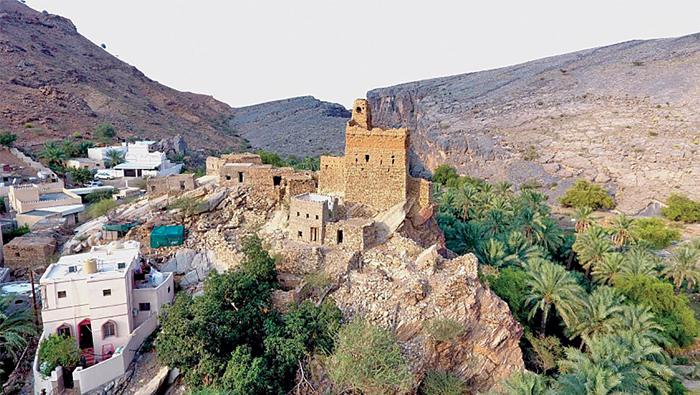
Muscat: A Royal Decree has been issued to establish Rustaq Wildlife Nature Reserve in the Governorate of South Al Batinah.
The reserve will have more than 110 species of plants and trees, six different types of mammals and over a dozen species of birds.
Najib Al Rawas, Undersecretary of the Ministry of Environment and Climate Affairs, said: “The creation of a wildlife reserve will help the Sultanate in preserving the natural environment for many years to come, reduce the changes affecting the natural environment and protect the species.”
Article (1) of the Royal Decree said: “A nature reserve shall be established in the name of Al Rustaq reserve of wildlife in South Al Batinah governorate and shall be assigned the area specified in the decree annex.”
Article (2): “The Minister of Environment and Climate Affairs shall issue regulations and decisions to implement this decree in coordination with the concerned ministries and authorities, including the management of the reserve, the rules regulating public access, the fees prescribed for it, the activities allowed to practice and those that are prohibited, and appropriate administrative sanctions in each case.”
Majid Al Khanbashi, Nature Reserve Specialist, at MECA Department of Nature Reserve said: “Al Rustaq Wildlife reserve is a mountain range extending from east of Wadi Bani Kharos to Wadi Al Sahtun in the west, and the mountain range is more than 2,000 metres above sea level.
“More than 110 species of wild plants and trees have been registered in the protected area, as well as plant species in the Red List of the International Union for the Protection of Nature.
Dense vegetation
“The northern slopes contain dense vegetation cover and plants are perennial in nature.”
Eng. Sulaiman Al Akhzami, Director General of Nature Conservation in the ministry, said: “The ministry has, in coordination with a number of authorities, conducted studies and research related to its biological diversity.”
The mammals in the reserve are spread over sparsely populated areas with rugged terrain, and field surveys conducted by specialists have recorded six species of mammals, three of which are small mammals like mountain fox and hedgehog and bats, and the other larger mammals like Arab fowl, lynx and white-tailed fowl. 16 species of wild birds have been recorded in the reserve such as eagles which live in high
mountains.”
Al Akhzmi confirmed that the ministry would coordinate and carry out field inspection visits to follow up the application of environmental laws and requirements within the sites. He stressed that these two sites will contribute to the development of scientific research in environmental and climatic fields.